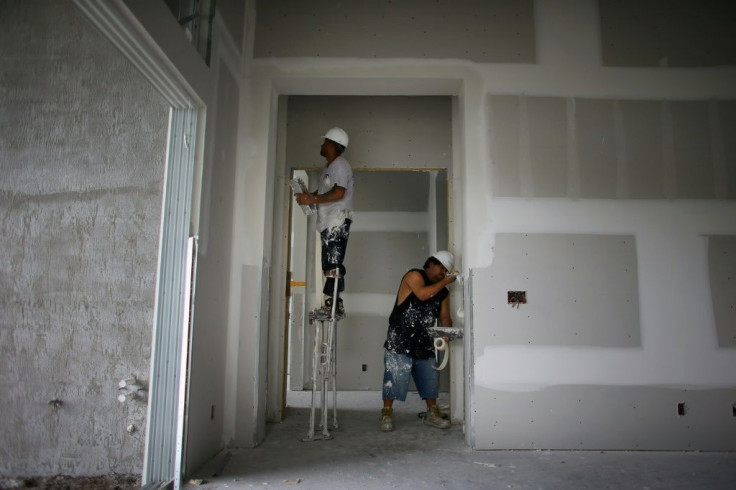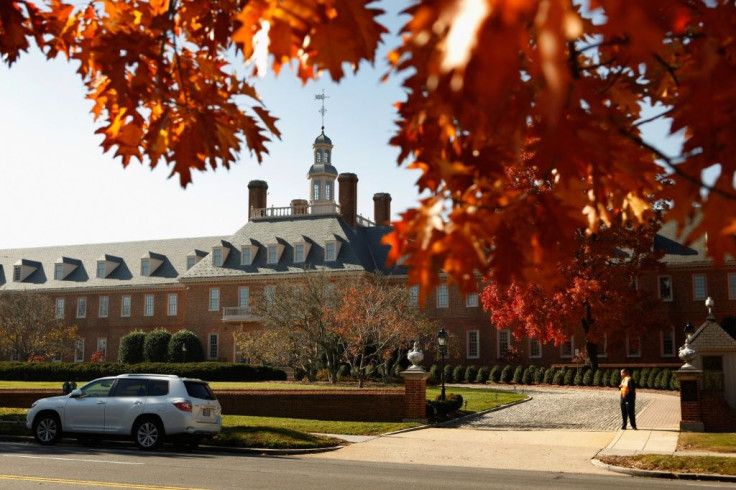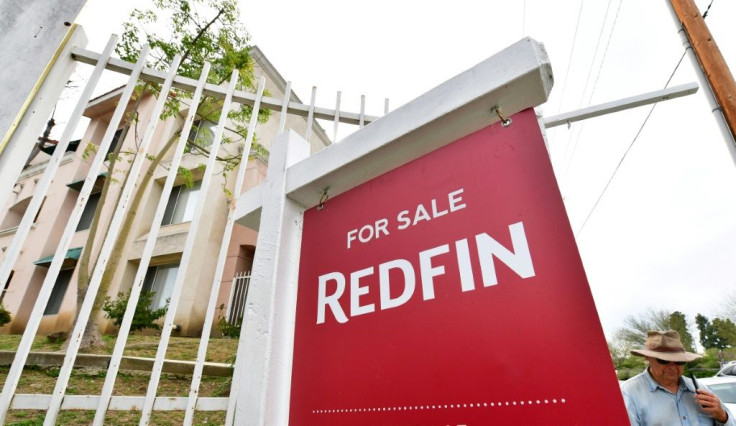Home Sales Seen Falling 15% This Year; Requests To Delay Mortgage Payments Jump Sharply

KEY POINTS
- Fannie Mae expects existing home sales to drop to an annual rate of 4.54 million units
- National Association of Realtors said home sales could drop about 10% in the short term
- Freddie Mac says the average 30-year fixed-rate mortgage could to 3.3% this year and 3.1% next year
A housing market crash looks inevitable in the U.S., with sales of new and existing homes likely to fall as much as 15% this year because of the coronavirus pandemic. In a slowing economy, while some homeowners would be forced to sell their property, even low mortgage rates might not bring in buyers who are facing economic and healthcare uncertainties.
A recent Fannie Mae report projected that fall in the home sales was in contrast to analysts' prediction last year of a good year ahead for the housing sector. Existing home sales, which Fannie Mae expects will drop to an annual rate of 4.54 million units, down from 5.34 million in 2019, could pose one of the biggest challenges to the sector since the recession caused by the subprime crisis in 2008-2009, a MarketWatch.Com report said.
The market could be hit on both supply and demand sides, leading to a sharp fall in home-buying activity, the report said. The rapid rise in unemployment because of the pandemic could hit the demand side; the stay-at-home orders could reduce people’s ability and willingness to initiate a purchase as big as a home with long-term implications.
Housing bulls have already started pulling out of the market and putting pressure on the prices, a CCN report said, suggesting that the hit could be as bad as $1.3 trillion. The National Association of Realtors said last month home sales could drop about 10% in the short term compared to historical sales for this time of year. A 1.32% rise over the year in house prices indicated by a Federal Reserve consumer survey in March happens to be the lowest since the survey began in 2013, the report says.
The travails the sector could face in the coming months would be in sharp contrast to the great January that it enjoyed. Home prices rose 3.9% annually in January, the Case-Shiller Index showed. The growth was higher than December’s 3.7%, and well ahead of the home value growth of 3.4% for the whole of last year, the report said.

In its quarterly forecast, Freddie Mac highlighted the challenges that the sector faces amid the uncertainties set off by the pandemic, according to a Reuters report. The average 30-year fixed-rate mortgage was expected to fall to 3.3% this year and to 3.1% in the next year. Freddie Mac pegs the annual housing price growth to decelerate to 0.4% this year amid a sharp fall in home sales. Home sales were expected to fall this year to 5.1 million units and increase in 2021 to 6.1 million units, the report said. The annual mortgage origination levels would stagnate at $2.4 trillion this year and next, according to the report. Refinance originations could be $1.2 trillion in 2020 and slow to $1.03 trillion in 2021.
Mortgage applications to buy a home dropped for the fifth consecutive week, down 2% from the previous week and 35% from a year ago, according to the CCN report. The slump could worsen the crisis that lenders face from the request to delay mortgage payment. The number of requests shot up 1,900% in the second half of March, a Mortgage Bankers Association note said.
Home prices were supported by historical supply backlog
“On the supply side, the number of listings is falling, as those with homes to offer may either be hesitant to allow strangers to tour their home or worry that the lack of demand is placing downward pressure on the sales price they might otherwise receive,” Fannie Mae chief economist Doug Duncan said in the report.
Since the Great Recession, home-building activity had lagged the marketplace, keeping the prices up. Economists had expected that the low number of homes on the market would prevent buyers from finding a property that they could afford. Would-be sellers pulling their listings may worsen this situation, the report says.

Fannie Mae, however, said sellers would still see the median price for an existing home rising to $275,000 in 2020 from $272,000 last year, while the median price for a new home is expected to increase to $326,000 from $321,000.
“The historically rapid decline in economic activity, the accompanying employment loss, and our limited, though improving, understanding of COVID-19 make this a particularly challenging forecast environment,” Duncan said. Therefore, the error probability of the forecast would be high and dependent on the “incidence, severity, and duration of the virus, as well as the response of the public and policymakers to new information.”
© Copyright IBTimes 2024. All rights reserved.




















